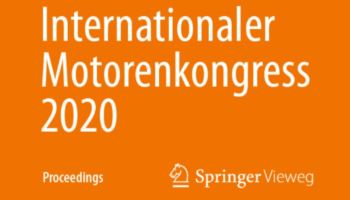Written by Jaykumar Yadav, Vikram Betgeri, Barbara Graziano, Avnish Dhongde, Benedikt Heuser, Markus Schönen & Nina Sittinger.
Abstract
According to a report from the 2018 International Council on Clean Transportation, the transport sector alone is contributing 32 % of the total CO2 emission in the European Union. Here, heavy duty vehicles are responsible for 25 % of the CO2 emissions. The joint project “Robust and Efficient Processes and Technologies for Drop-In Renewable Fuels for Road Transport” (REDIFUEL) aims to produce an ultimate renewable drop-in biofuel, which is compliant with EN590 norms in a sustainable manner. In this project, a holistic fuel characterization is planned to assess the fuel characteristics and engine performance of this new paraffinic biofuel, consisting of about 30 vol% bio-alcohols. This work presents a first characterization and engine testing of a surrogate REDIFUEL mixture representative of the expected real end-product. Density, viscosity and cetane number of different blending proportion of this renewable fuel with diesel are screened, to assess its drop-in capability and the inherent impact on engine performance. With 40 vol% share of REDIFUEL in diesel, both the minimum EN590 requirements for cetane number and density are met. When this blend is compared against diesel, a relative reduction in indicated specific particulate matter, indicated specific carbon monoxide, indicated specific hydrocarbon and CO2 emissions by 12 %, 6 %, 18 %, and 2.7 %, is respectively observed at a selected engine operated point. Numerical simulations show that blending REDIFUEL with diesel enhances the mixture formation, enabling a higher level of oxygen entrainment in the spray plume.
Link: https://link.springer.com/chapter/10.1007/978-3-658-30500-0_24






